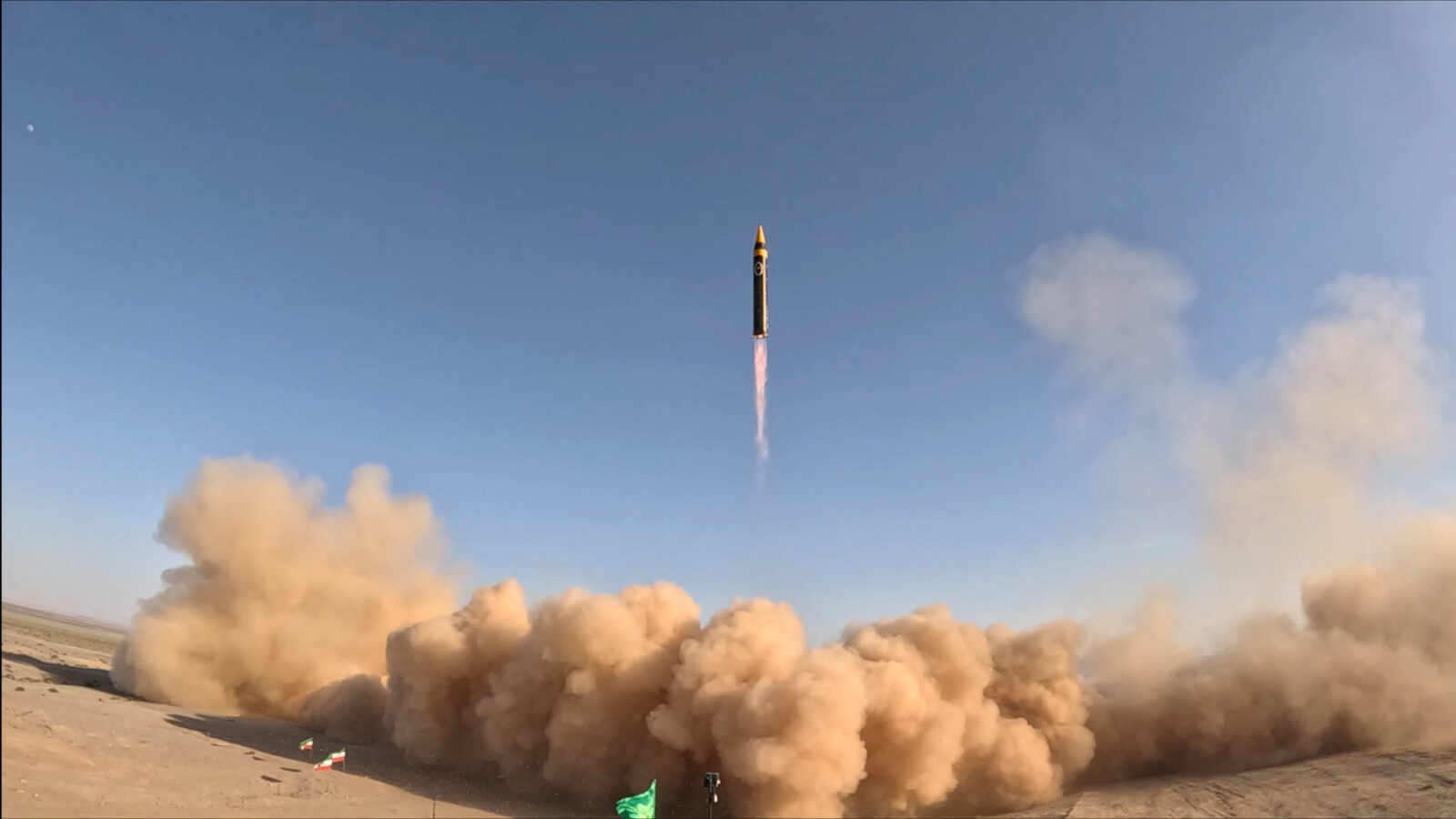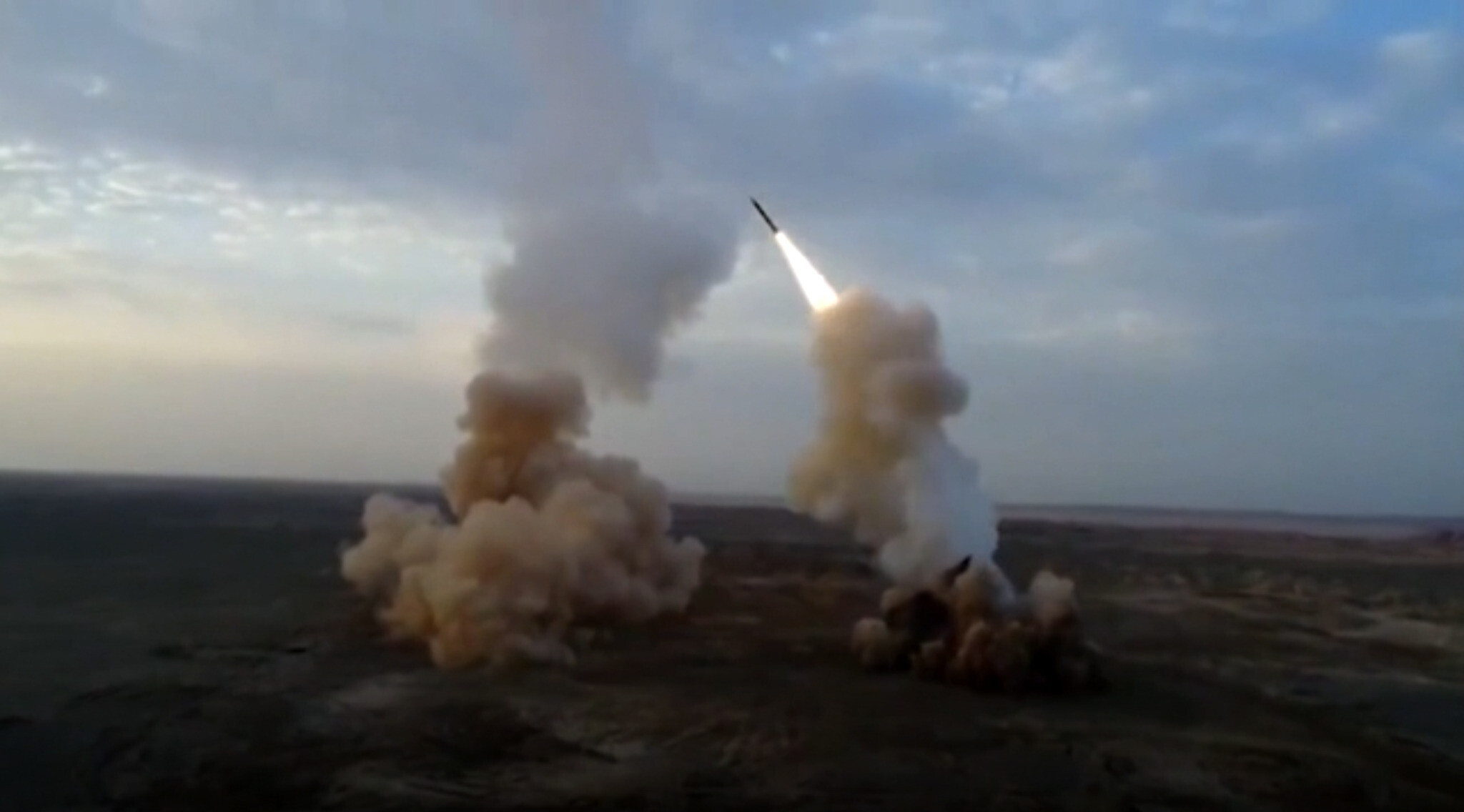The Middle East has long been an epicenter of geopolitical strife, with the complex web of alliances, religious conflicts, and national interests contributing to persistent instability. The tension between Israel and Iran is at the heart of this conflict, often dragging surrounding states and non-state actors into their protracted struggle. In the context of recent developments, an Iranian ballistic missile strike on Israel raises significant questions about how Israel might retaliate, the political consequences of such a response, and the broader implications for regional and global security.
Israel’s Retaliatory Options
In light of Iran’s recent missile attacks, Israel faces multiple retaliatory options, each with its set of advantages and drawbacks. Historically, Israel’s responses to aggression have ranged from targeted airstrikes to large-scale military operations, often aimed at degrading enemy military capabilities while sending a clear message of deterrence.
- Targeted Airstrikes and Missile Strikes:
Israel could opt for a limited but potent response through targeted airstrikes aimed at Iranian military installations, either within Iranian territory or against Iranian proxies in Syria, Lebanon, or Iraq. Israel’s defense forces (IDF) have a track record of surgical precision in such operations, reducing the risk of significant civilian casualties while maximizing the destruction of critical military assets. This would likely involve Israel’s advanced fighter jets, such as the F-35, which have been integral in previous operations. Such strikes would target key Iranian Revolutionary Guard facilities, missile storage sites, and other military infrastructures involved in the missile attack. - Cyber Warfare:
Another less conventional method of retaliation would involve cyberattacks against Iran’s critical infrastructure. Israel has demonstrated advanced capabilities in this domain, as evidenced by previous operations, such as the Stuxnet attack on Iran’s nuclear facilities. Cyberattacks could target Iran’s financial systems, communications infrastructure, or even military command-and-control centers. This approach could allow Israel to strike a crippling blow to Iran’s operational capabilities without resorting to full-scale military engagement, reducing the immediate risk of an all-out war. - Covert Operations:
Israel has a long history of conducting covert operations to eliminate key figures within hostile organizations, such as Hezbollah or Hamas. Covert operations targeting Iranian officials or military commanders, particularly those involved in missile attacks or other aggressive actions against Israel, could send a strong retaliatory message. Such operations, typically carried out by Mossad, allow Israel to avoid overt military escalation while still achieving its objectives of deterrence and retribution. - Full-Scale Ground Offensive:
Should the missile attack be part of a broader offensive by Iran or its proxies, Israel might be compelled to launch a more extensive military campaign. A full-scale ground invasion of southern Lebanon, aimed at neutralizing Hezbollah, a key Iranian proxy, could be considered. However, this would carry significant risks, as it could escalate into a prolonged conflict with Hezbollah and potentially drag other regional actors, such as Syria or even Iran, into the fray. The last ground invasion into Lebanon in 2006 left a deep impact on both Israeli society and the regional power dynamics, and a repeat would risk similar consequences, with civilian casualties and international condemnation. - Economic and Diplomatic Sanctions:
In a less aggressive yet impactful move, Israel could pursue diplomatic channels to rally international support for imposing further sanctions on Iran. Israel has a strong relationship with the United States and could leverage this to push for additional sanctions targeting Iran’s oil exports, financial sector, and military procurement. This would not only weaken Iran’s economy but also isolate it further on the global stage. However, this approach requires international cooperation, and it is not guaranteed that key actors like Russia or China would support such measures.

Political Ramifications of Israel’s Retaliation
The potential political impact of Israel’s retaliation will ripple across the Middle East and beyond, influencing the strategic calculations of regional and global powers.
The Middle East is a cauldron of intersecting alliances and rivalries. Iran’s missile barrage is seen as a direct consequence of Israeli actions against Hezbollah and Iranian leaders, making any retaliation an extension of the proxy conflicts that characterize Israeli-Iranian relations. A retaliatory strike by Israel could ignite further hostilities from Hezbollah in Lebanon or Iranian-backed militias in Syria and Iraq. The risk of spillover into other parts of the region is high, and Israel must carefully consider the responses of regional actors such as Saudi Arabia and the Gulf States, many of whom are tacitly allied with Israel in their opposition to Iran.
Moreover, the fragile state of Lebanon could further destabilize, as Hezbollah remains a dominant political and military force within the country. A large-scale Israeli offensive could weaken Hezbollah but also lead to civilian casualties and widespread destruction in Lebanon, complicating Israel’s diplomatic standing with other Middle Eastern countries.
Global Political Consequences
At the international level, Israel’s response will likely be scrutinized by the United Nations and key global powers, including the United States, Russia, and the European Union. Any large-scale military action by Israel could face condemnation from the UN, with calls for de-escalation and ceasefires coming from the Security Council and the General Assembly. While Israel’s strategic alliance with the United States would likely provide some diplomatic cover, particularly in the form of veto power in the Security Council, other global powers, such as Russia and China, may take a less sympathetic stance, particularly if Israeli actions lead to widespread civilian casualties.
The United States, under its current administration, would be expected to offer full support to Israel, as it has in the past, emphasizing Israel’s right to self-defense. However, U.S. involvement in a broader regional war would be deeply unpopular domestically, especially after decades of engagement in the Middle East. Washington would likely push for a restrained Israeli response, urging its ally to avoid actions that could draw the U.S. into another protracted conflict in the region.

Escalation to Regional War
One of the gravest concerns surrounding any Israeli retaliation is the potential for it to trigger a larger regional war. Iran has explicitly warned of further “crushing attacks” should Israel respond to the missile barrage. If Israel’s retaliation were to lead to Iranian counterstrikes, it could rapidly spiral into a broader conflict involving multiple actors, including Hezbollah, Hamas, and perhaps even Iran directly. Such a scenario would almost certainly involve U.S. forces stationed in the region and could draw in other nations, such as Saudi Arabia, which has its rivalry with Iran.
The potential for a full-scale regional war would have dire consequences for global energy markets, given the proximity of key oil-producing nations. A conflict that disrupts shipping in the Persian Gulf could send global oil prices skyrocketing, affecting economies far beyond the Middle East. This would put additional pressure on global powers to intervene diplomatically to bring an end to hostilities.
The Role of Non-State Actors and Proxy Forces
The role of non-state actors, particularly Hezbollah and Hamas, cannot be understated in this conflict. These groups, supported by Iran, represent a persistent security threat to Israel and are often the catalysts for wider confrontations between Israel and Iran. Iran’s network of proxy forces across the region, often referred to as the “Axis of Resistance,” provides Tehran with the means to wage asymmetric warfare against Israel without directly engaging its military forces.
Israel’s retaliation, particularly if it targets Hezbollah or other Iranian proxies, could provoke a response from these groups, leading to a broader conflict that extends beyond Israel and Iran. Hezbollah, with its stockpile of rockets and missiles, poses a significant threat to northern Israel, and any Israeli operation in Lebanon would need to account for the likelihood of sustained rocket attacks on Israeli cities.
International organizations, including the United Nations, are likely to call for restraint and a ceasefire in the event of Israeli retaliation. The UN has long been involved in peacekeeping efforts in Lebanon, and any Israeli operation there would place UN peacekeepers at risk, further complicating the situation. The UN Secretary-General has already condemned the escalation, and further military action by Israel could prompt calls for an immediate cessation of hostilities.

The broader international community, particularly the European Union, is also likely to push for diplomatic solutions, possibly through backchannel negotiations aimed at preventing a larger conflict. However, Israel’s deep-seated mistrust of the UN and other international bodies means that it is unlikely to heed calls for a ceasefire unless it deems its military objectives have been met.
As Israel considers its response to the Iranian missile barrage, it must weigh the immediate need for security against the long-term political and military consequences of its actions. The potential for escalation into a broader regional war looms large, and any Israeli retaliation will have significant repercussions not only for Israel and Iran but for the entire Middle East and the wider international community.
Ultimately, Israel’s ability to navigate this complex geopolitical landscape will depend on its capacity to balance military deterrence with diplomatic engagement, all while managing the domestic and international fallout of its actions. Whether through targeted strikes, covert operations, or diplomatic isolation, Israel’s response will undoubtedly shape the future trajectory of its conflict with Iran and set the tone for broader regional stability in the years to come.



